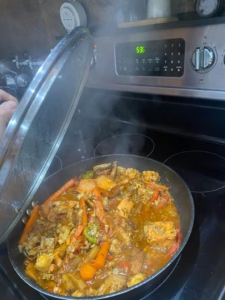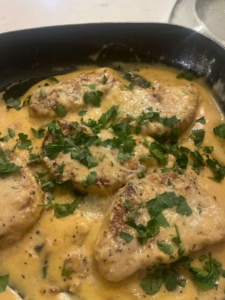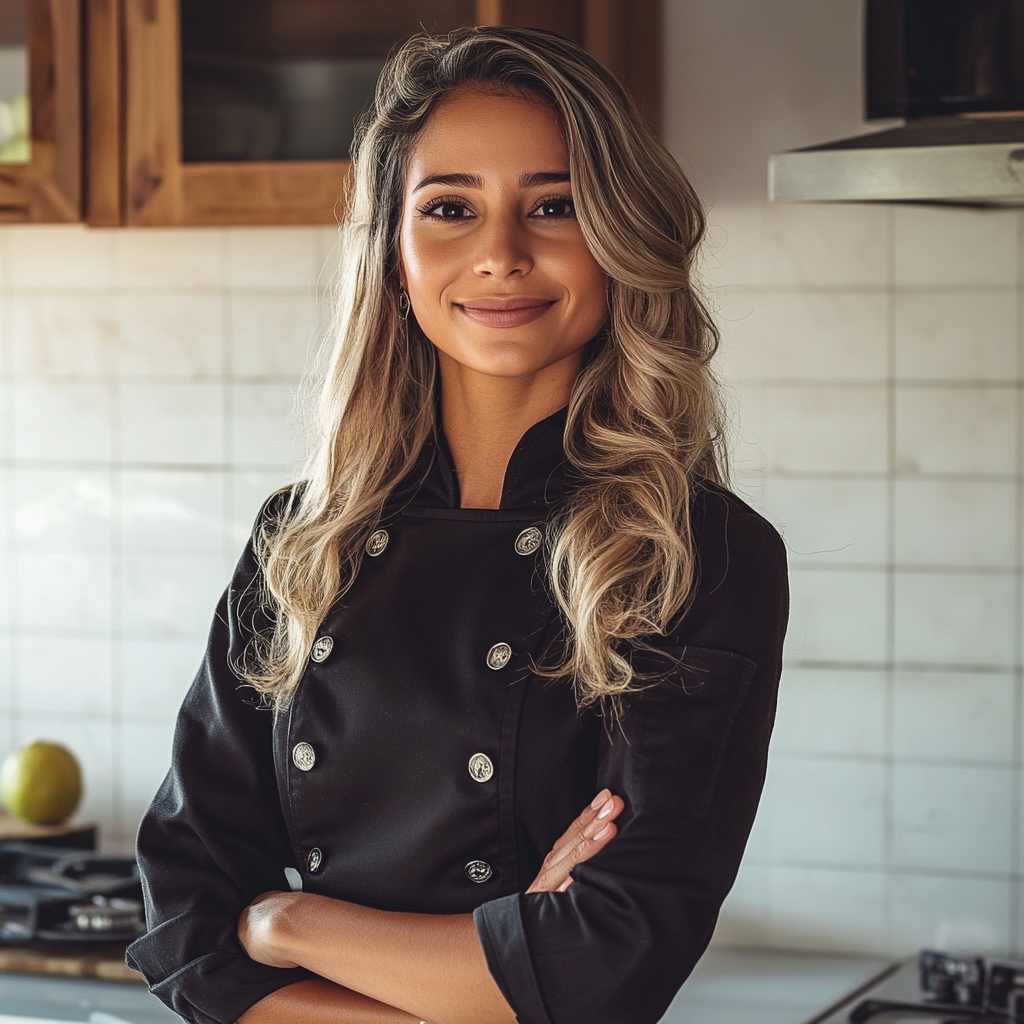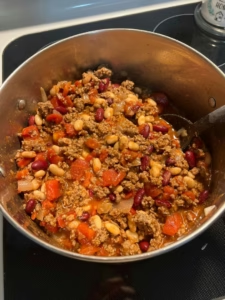Are you tired of dry, tough chicken? Chicken that people boil often turns out rubbery and flavorless. However, when properly boiled, chicken can be tender, juicy, and flavorful. So how do you boil chicken thighs so that they turn out tender and juicy?
How Long Does It Take To Boil Chicken Thighs
How long to boil chicken thighs? This is a question I get a lot, and it’s not always an easy one to answer. It depends on a few factors, such as the size of the chicken thighs, the number of chicken thighs, the type of pot you’re using, and how much water you’re using.
Factors Affecting Boiling Time:
- Size and Thickness: Larger and thicker thighs require a longer cooking time to ensure the meat is cooked through.
- Bone-In vs. Boneless: Bone-in thighs tend to take a bit longer to cook compared to boneless thighs.
- Starting Temperature: Thawed chicken will cook faster than frozen chicken.
What is the Standard Boiling Time for Chicken Thighs?
In general, it takes about 30 minutes to boil chicken thighs. But, like I said, it depends on a few factors. If you’re using a small pot, you might need to boil the chicken thighs for a bit longer. If you’re using a lot of water, you might need to boil the chicken thighs for a bit less time. Here are some general guidelines:
- Boneless, Skinless Chicken Thighs: These typically take about 20-30 minutes to fully cook when simmered in water.
- Bone-In, Skin-On Chicken Thighs: These usually require a slightly longer cooking time of around 30-45 minutes.
Regardless of the type, it’s crucial to ensure that the internal temperature of the chicken reaches at least 165°F (74°C) for safe consumption.
How Much Water is Needed to Boil Chicken Thighs?
Wondering “how long to boil chicken thighs?” The amount of water you use is important. Here’s a simple guide:
Cover the Chicken Thights:
Make sure that the water or broth in the pot completely covers the chicken thighs to ensure even cooking.
Extra for Evaporation:
During the boiling process, water turns into steam and evaporates. The rate of evaporation depends on factors such as the cooking temperature, the size of the pot, and whether the pot is covered. To ensure the chicken stays submerged throughout cooking, adding approximately 10-20% more water than needed to just cover the thighs is a good practice. For instance, if you need 4 cups of water to cover the chicken, adding an extra 0.5 to 1 cup will account for the water lost to evaporation.
For Flavorful Chicken Thights:
If you want to make tasty broth or add herbs, you can add a bit more water too. This won’t change how long you need to boil the chicken thighs, but it will make your dish taste better.

Should the Pot be Covered or Uncovered While Boiling?
When boiling chicken thighs, you might wonder if you should put a lid on the pot or leave it off. Here’s what you need to know:
- Covered: Putting a lid on the pot keeps the heat inside, which can make the water boil faster and cook the chicken evenly. It also stops too much water from turning into steam and leaving the pot.
- Uncovered: Leaving the pot without a lid lets you keep a close eye on the chicken and make sure it’s not boiling too hard.
In general, covering the pot is a good idea because it helps cook the chicken quickly and keeps enough water in the pot. But if you want to check on the chicken often, you might prefer to leave it uncovered.
Can You Overcook Chicken When Boiling?
Yes, chicken can be overcooked when boiling, and it’s a common mistake. Here’s what happens when you overcook chicken:
- Texture: Overcooked chicken becomes tough and stringy instead of tender and juicy. This can happen if it’s boiled for too long or at a very high temperature.
- Flavor: When chicken is cooked too much, it can lose its flavor and become bland.
- Moisture: Overcooking can cause the chicken to dry out, even if it’s in water or broth.
What Tips Can Help Avoid Overcooking Chicken When Boiling?
Overcooking chicken can lead to a tough and flavorless meal. Here are some tips to ensure your boiled chicken remains tender and delicious:
- Timing: Be mindful of how long you’re cooking the chicken. Boneless thighs typically require about 20-30 minutes, while bone-in thighs may take 30-45 minutes.
- Temperature: Keep the water at a gentle simmer rather than a rapid boil. This ensures the chicken cooks evenly without becoming tough.
- Check for Doneness: Using a meat thermometer is a reliable way to check if your chicken is ready. The internal temperature should reach 165°F (74°C) for safe consumption.
How Can You Tell if Boiled Chicken is Done Without a Thermometer?
While a meat thermometer is a handy tool to check for doneness, there are other ways to tell if your boiled chicken is ready to eat:
- Check the Color: Fully cooked chicken should be white all the way through. If you see any pink or translucent parts, it needs more time to cook.
- Texture: Cooked chicken should have a firm texture. You can test this by using a fork or knife to gently press or cut into the meat. If it feels rubbery or too soft, it may need more time.
- Juices: When you cut into the chicken, the juices that come out should be clear. If the juices have a pinkish color, the chicken likely needs more time to cook.
- Cooking Time: While not foolproof, keeping track of cooking time can also be a guide. Boneless chicken thighs usually take about 20-30 minutes, while bone-in thighs can take 30-45 minutes.
FAQs About Boiling Chicken Thighs
There are a few different ways that you can boil chicken thighs, but the simplest way is to place them in a pot of boiling water. You can also add some seasonings to the water, such as salt, pepper, or garlic, to give the chicken thighs more flavor.
Yes, you can! In fact, adding vegetables to the pot can actually help to flavor the chicken thighs. Just be sure to add the vegetables after the chicken has been boiling for a few minutes, so they don’t overcook.
Both methods have their benefits. Boiling chicken thighs is quick and yields tender meat, while baking takes longer but can provide a crispy skin and richer flavor. The choice depends on your preference and the dish you’re preparing.






